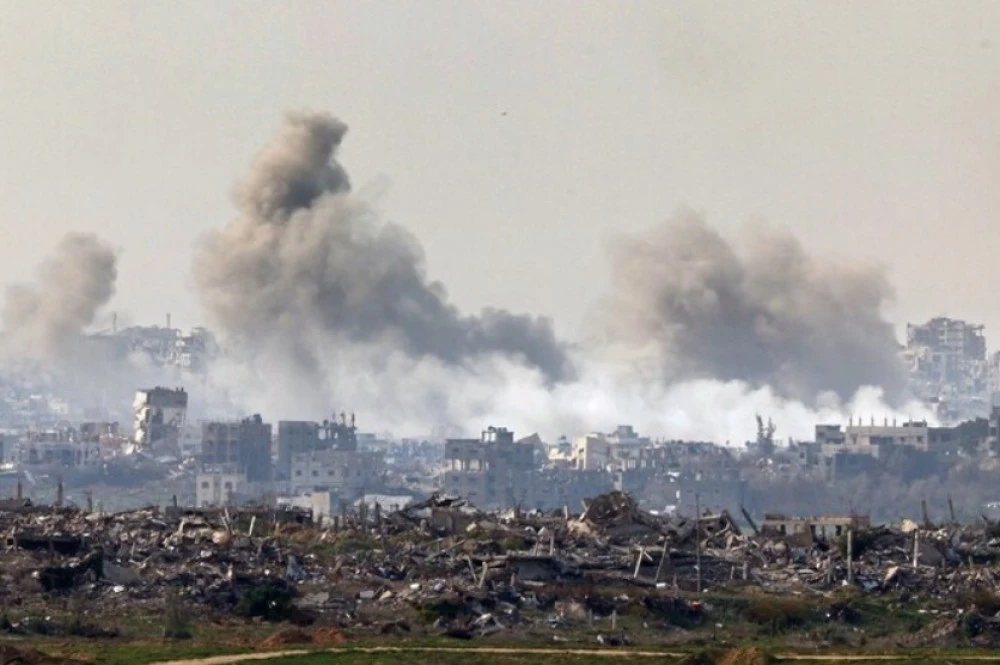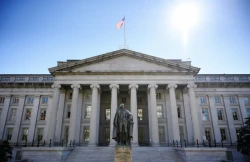What comes after a Gaza ceasefire deal
- 2025-01-15 08:02:00

A long-awaited ceasefire deal between Israel and Hamas appears imminent, according to US, Israeli, Qatari and Palestinian sources. After months of fruitless negotiations, the two sides are now closer than ever to sealing a multi-phased agreement that would bring an end to the bloodletting, allow for the release of Israeli captives and Palestinian prisoners, and ensure a gradual Israeli withdrawal from war-ravaged Gaza.
Details are sketchy, but what is clear is that US President-elect Donald Trump has stepped in and put pressure on Israeli Prime Minister Benjamin Netanyahu to embrace a deal before his inauguration on Jan. 20. President Joe Biden also spoke of an agreement to be sealed soon, while Secretary of State Antony Blinken unveiled his vision for a postwar Gaza on Tuesday.
Speaking about his own foreign policy achievements, Biden mentioned the plight of the people of Gaza, “who have been through hell,” and spoke of the right of Palestinians to self-determination. Trump, on his part, said on Monday: “We are very close to getting it done. There has been a handshake, and they are getting it finished. If it won’t happen, there will be a lot of trouble.”
It is ironic and sad that Trump has been able to push all parties to accept a deal when Biden could have done the same months ago, thus sparing many innocent lives on both sides. The fact that Biden and Blinken have allowed Netanyahu and his far-right coalition to carry out the worst genocide in modern times, all while supplying Israel with tens of billions of dollars-worth of arms, is an indelible stain that has made the US complicit in the Gaza carnage.
Trump will take credit for stopping the massacre and ending what had become the most horrific war against civilians in the 21st century. Netanyahu, who wasted no opportunity to derail an agreement that could have been reached many months ago, finds himself in a corner. He has not delivered a “total victory,” nor has his army been able to free all hostages. Under the proposed agreement, the Israeli military will withdraw from key positions in Gaza, culminating in total withdrawal in the final phase of the ceasefire agreement.
The end of the war — a final cessation of hostilities that is yet to be agreed upon — will trigger a political crisis in Israel. Netanyahu’s far-right partners have threatened to quit the coalition. Pressure will rise in Israel for an independent inquiry into the events of Oct. 7, 2023. Netanyahu’s trial on corruption charges will resume. His margin of maneuverability will become much smaller. It is unlikely that he will be able to survive politically as captives begin to return home and the world has a first glance at the level of mass destruction Israel has inflicted on Gaza.
Regarding the “day-after” scenario, Blinken’s vision of a reformed Palestinian Authority role, with Arab participation, will depend on how the Trump team sees things. While Hamas has sustained significant losses in its leadership structure and military prowess in Gaza, it has survived as a political force. What role it will have in Gaza in the future depends on the Trump White House, Israel and, to some extent, the PA.
Much also depends on what the people of Gaza want. They have paid the ultimate price for the events of Oct. 7, 2023, and it is up to them to determine their own future. They should be allowed to do so. The biggest challenges once a ceasefire deal is adopted are to facilitate the passage of humanitarian assistance and the documentation of war crimes in Gaza.
That last challenge will not be mentioned in the ceasefire deal. But even if the war ends, the world should not ignore the fact that Israel has committed serious breaches of international law. Independent investigators and foreign journalists must be allowed into the stricken Strip. They have to report to the world the horrific war crimes that Israel has committed over the past 15 months. Accountability must be a cornerstone of any lasting agreement involving Gaza.
Meanwhile, one has to be wary of Israel’s commitment to the ceasefire deal. In Lebanon, Israel has allegedly violated the agreement with Hezbollah hundreds of times. The same will happen in Gaza. Israel will find excuses to derail the deal and resume its aggression in Gaza. The guarantors — the US, Qatar and Egypt — must make sure that an end to the war is lasting and that Israel will have no reason to resume its attacks.











